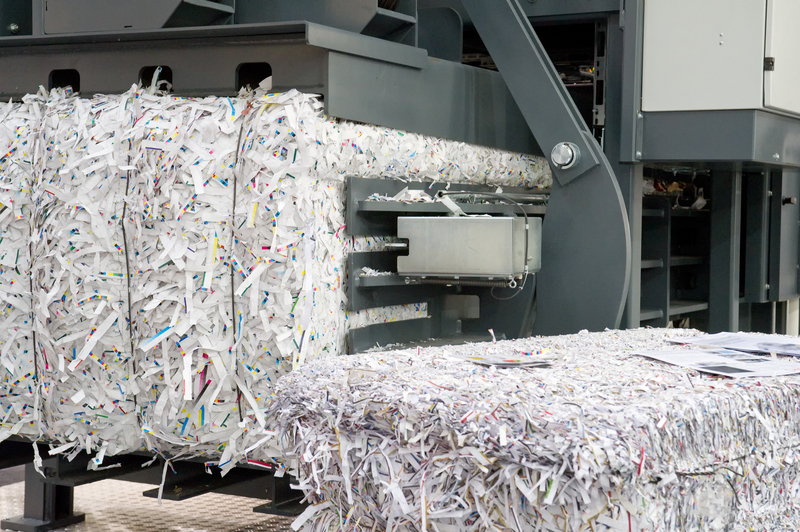Recycling in the UK: Status and Progress
Posted on 11/06/2025
Recycling has become a major aspect of waste management in the United Kingdom, with an increasing focus on sustainability and reducing the negative impact of waste on the environment. In recent years, there has been significant progress in the UK's recycling efforts, but there is still room for improvement. This article will explore the current status of recycling in the UK, highlight some of the progress that has been made, and discuss the pros and cons of recycling. Additionally, we will provide tips for individuals looking to improve their recycling habits and discuss key takeaways on the importance of recycling.
Status of Recycling in the UK
The UK has made impressive strides in its recycling efforts over the past decade. According to data from the Department for Environment, Food & Rural Affairs (Defra), in 2019, the country recycled 46.5% of all household waste, compared to just 11.2% in 2000. This figure represents a significant increase and shows that more households are participating in recycling programs. However, it is worth noting that while England has seen steady increases in recycling rates, Scotland, Wales, and Northern Ireland have consistently outperformed them.
One reason for this discrepancy could be attributed to differences in how each nation collects and measures recycling data. For example, Scotland includes commercial and industrial waste in their figures while England only focuses on household waste. Nonetheless, it is clear that overall recycling rates in the UK are moving towards a positive direction.

Progress Made
A large part of the UK's progress can be attributed to government initiatives such as implementing landfill taxes and increasing landfill diversion targets. These policies have incentivized local authorities to invest in more sustainable waste management practices like recycling.
Moreover, there have been significant investments made in infrastructure for collecting and separating recyclable materials. This has led to an increase in the types of materials that can be recycled and has made the process more accessible for individuals.
Pros and Cons of Recycling
One of the main benefits of recycling is that it reduces the amount of waste that ends up in landfills, which in turn reduces greenhouse gas emissions and environmental pollution. Additionally, recycling helps conserve natural resources such as timber, water, and minerals by reducing the need for raw materials.
However, there are also some downsides to recycling. One of the biggest challenges is contamination. When non-recyclable items are mixed in with recyclables, it can taint the entire batch and render it unrecyclable. This not only wastes time and resources but also decreases the value of the recycled material.
Another issue is that recycling relies heavily on markets for recycled materials. If there is a decrease in demand for these materials, it can lead to stockpiling or even sending them to landfill because they have no use.
Tips for Effective Recycling
To ensure your recycling efforts are effective, here are some tips to keep in mind:
1. Familiarize yourself with your local authority's recycling program to understand what materials they accept.
2. Rinse out containers before placing them in the recycling bin to prevent contamination.
3. Check the labels on packaging to determine if it is recyclable or not.
4. Break down cardboard boxes to save space in your bin.
5. Avoid putting plastic bags or films in your recycling bin as they can damage machinery at recycling facilities.

Key Takeaways
Recycling plays a crucial role in reducing waste and preserving our environment. The progress made by the UK over the years shows that small changes can make a big difference. However, there is still room for improvement, and individuals must continue to do their part in contributing to a more sustainable future.
Some key takeaways from this article include:
- Recycling has significantly increased in the UK, but rates vary across different nations.
- Government initiatives and investments in infrastructure have been crucial in driving progress.
- While there are benefits to recycling, contamination and market demand remain as challenges.
- Tips such as familiarizing yourself with local recycling programs and properly preparing materials can help improve recycling efforts.
Conclusion
In conclusion, recycling in the UK has come a long way and continues to make progress towards a more sustainable future. By understanding the current status of recycling, its benefits and challenges, and implementing practical tips, individuals can play an important role in improving recycling efforts. It is up to all of us to take responsibility for our waste and contribute to a cleaner and greener planet. Let's continue to reduce, reuse, and recycle!
Latest Posts
UK Rubbish Removal: How It Operates
Creative Ideas for Reusing Wrapping Paper










